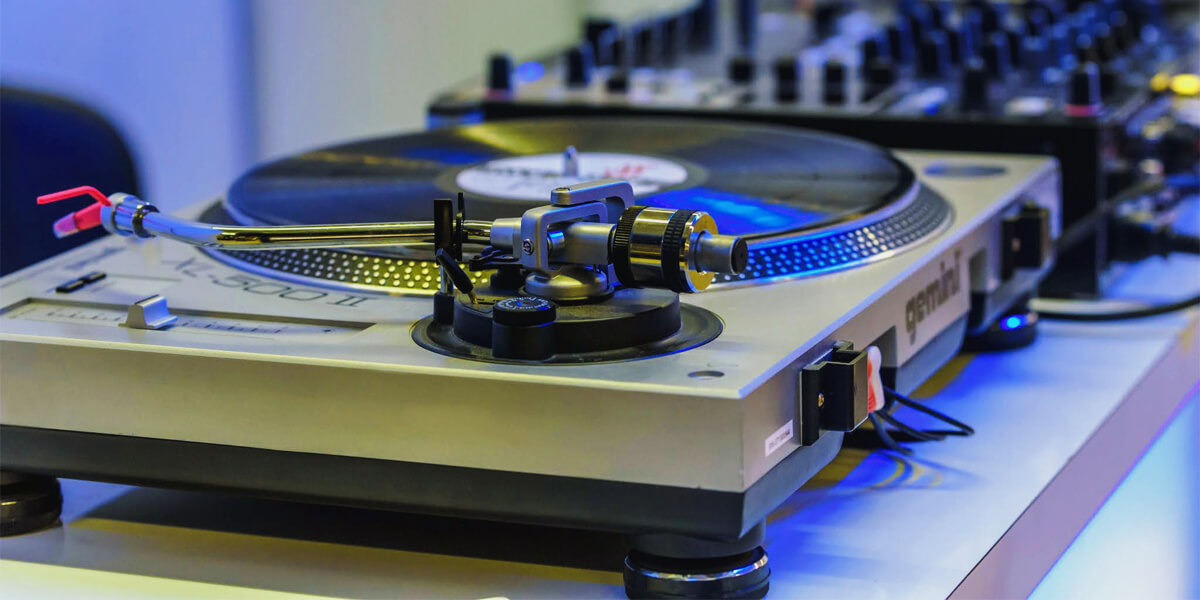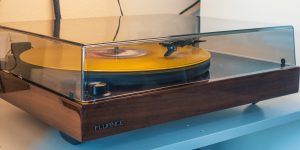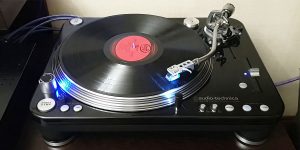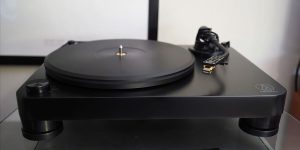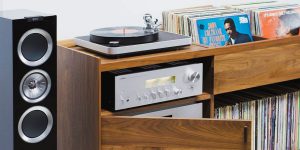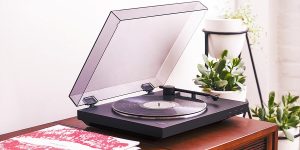As a devoted music enthusiast, I know how essential it is to achieve the best possible sound quality from your turntable setup. However, one often overlooked aspect when optimizing the audio experience is the phono cable for turntable connections. A quality cable serves as the important link between your turntable and amplifier, ensuring that every delicate nuance and subtle detail of your vinyl collection is faithfully reproduced. In this article, I will share expert tips on selecting the perfect phono cables to elevate your listening experience to new heights.
Exploring different options for turntable connections
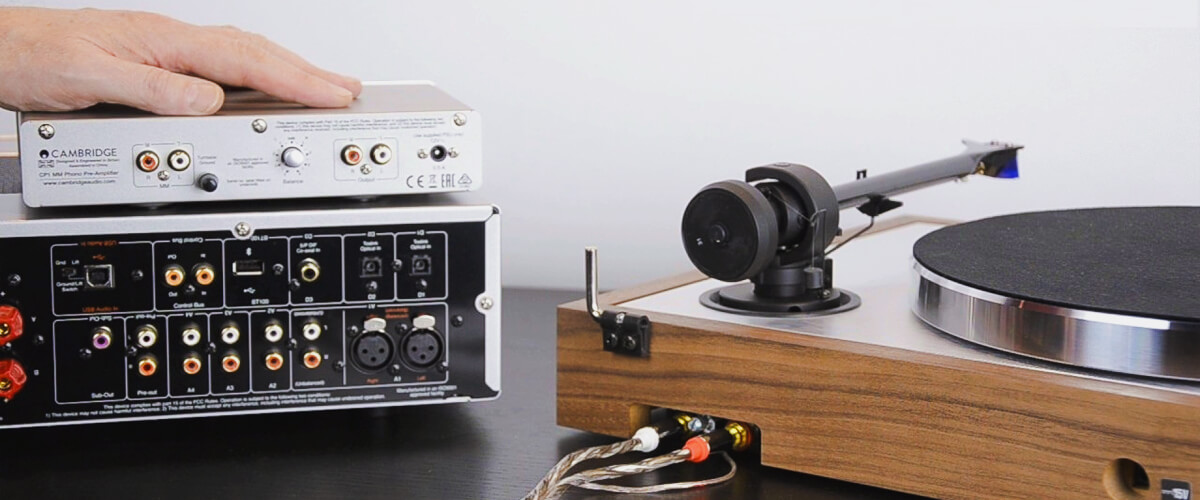
Choosing the right cables might not seem as glamorous as exploring vinyl records, but it plays a significant role in shaping your listening experience. In this section, I’ll cover the different types of audio cables for turntable setups.
RCA cables for turntables
When it comes to connecting your turntable to an amplifier or receiver, RCA cables are the go-to choice. With their iconic red and white connectors, these wires provide a simple and reliable way to transfer audio signals. Here’s a breakdown of the different types of RCA cords you might encounter:
- Standard RCA. They offer solid performance at an affordable price, making them a popular choice for most music enthusiasts.
- High-End RCA. If you’re seeking a step up in quality, high-end RCA wires might catch your attention. They often boast superior construction, enhanced shielding, and advanced materials to minimize interference and deliver cleaner audio signals.
- Audiophile-Grade RCA. For the serious vinyl devotees chasing the last ounce of audio perfection, audiophile-grade RCA connectors come into play. However, it’s important to weigh the cost against the perceived improvement in sound quality, as the difference might not always be night and day.
Remember, while it’s tempting to believe that spending a fortune on cables will automatically grant you sonic nirvana, the reality is more nuanced. Quality RCA phono cables from reputable manufacturers can offer remarkable performance without breaking the bank.
XLR cables for turntables
If you’re ready to venture into the realm of professional-grade connections, XLR wires might pique your interest. Here’s what you need to know about them:
- Balanced brilliance. Unlike RCA cords, which are unbalanced, XLR ones employ a balanced configuration. This means they have three pins, with two carrying the audio signals and the third serving as a ground. The balanced design helps minimize unwanted noise and interference, resulting in cleaner audio transmission.
- A secure connection. One distinctive feature of XLR wires is their sturdy locking mechanism. Once connected, they stay firmly in place.
- The XLR decision. Before diving headfirst into XLR connectors, consider whether your turntable and amplifier support XLR connections.
USB cables for turntables
In the digital music era, turntables equipped with USB outputs offer a convenient way to digitize your vinyl collection or enjoy your records through a computer. However, when it comes to USB cables, keep the following in mind:
- Quality matters. A high-quality USB cable with robust shielding and high-speed data transfer capabilities is crucial to maintaining the integrity of the digital signal.
- Length considerations. While shorter USB connectors are generally recommended to minimize signal degradation, well-made cords with excellent shielding can maintain data integrity even over longer distances.
By paying attention to the quality and length of your cables, you can ensure that your turntable setup is optimized for superior sound quality, whether you’re savoring the analog warmth of vinyl or venturing into the digital realm of music.
A guide to selecting the perfect cable for your turntable setup
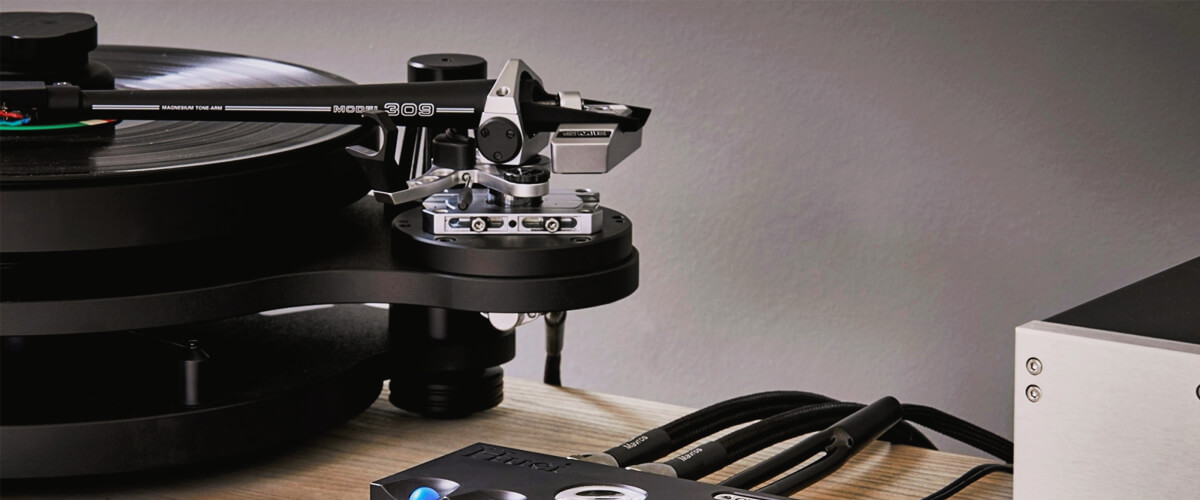
Selecting the right cable for your setup can mean the difference between a lackluster listening experience and an audio journey that captivates your senses. In this section, I’ll tell you how to choose the perfect turntable interconnects tailored to your unique setup and musical preferences.
Cable length and connection type
When selecting the right turntable connector, two essential factors come into play: length and connection type. Let’s unravel their significance and explore how to make the best choices for your specific setup.
- Length. Believe it or not, cord length can impact the sound quality and overall performance of your turntable setup. Here’s what you need to know:
- Short and sweet. In general, shorter wires are preferred as they minimize signal degradation and help maintain audio fidelity. Aim for the shortest cable length that comfortably connects your turntable to the audio equipment without strain or tension.
- Practicality vs. performance. Consider the distance between your turntable and amplifier/receiver, and choose a wire length that allows for flexibility and ease of setup.
- Connection type. Here are a few connection options to explore:
- RCA. As discussed earlier, RCA connectors are the most common and widely used connection type for turntables.
- XLR. If you’re looking for enhanced signal transmission and noise reduction, XLR connections offer a balanced solution.
- USB. For those venturing into digital territories, USB connections enable you to digitize your vinyl collection or play your records through a computer.
Unveiling the importance of cable quality and materials for turntables
Beyond length and connection type, cable quality and materials also play a vital role in shaping your listening experience. Here’s what you should know:
- Quality. Look for cords from reputable manufacturers known for their expertise in audio equipment. Read reviews and seek recommendations from fellow enthusiasts to ensure you’re choosing reliable options.
- Materials. Different wire materials can impact sound transmission and overall performance. Here are a few common materials you’ll come across:
- Copper. Copper is a popular choice for its excellent conductivity and affordability.
- Silver. Silver connectors are known for their superior conductivity and the potential to reveal finer details in music.
- Gold-plated. Gold-plated connectors are valued for their corrosion resistance and durability.
Now, armed with knowledge about wire length, connection types, quality, and materials, you’re well-equipped to make an informed decision when selecting the right turntable cord.
Tips for keeping your turntable cables in top shape
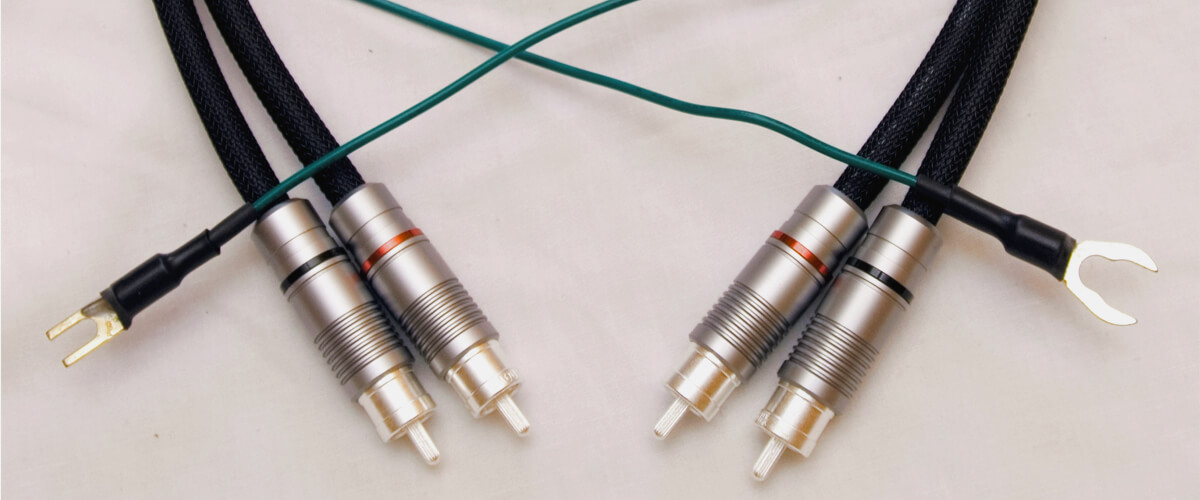
Ensuring pristine sound quality through your turntable cables is a delight. However, unwanted noise and connectivity issues can sometimes disrupt harmony. No worries! I’ll provide essential tips to maintain and troubleshoot your cables, making your audio experience seamless.
Let’s explore common problems and practical solutions to ensure cord longevity and optimal performance. Here’s how:
- Noise and interference. Watch out for grounding issues and keep cords away from potential sources of interference like power cables and speakers.
- Signal loss. Opt for shorter phono wire lengths and ensure quality connections for minimal signal loss.
- Connection issues. Check for physical damage, ensure compatibility, and clean connectors when needed.
Proper maintenance is key for optimal performance and longevity. Remember these tips:
- Regularly clean cables with a soft cloth to remove dust and debris.
- Inspect connectors for damage or wear and replace them as needed.
- Store wires in a cool, dry place, loosely coiled to avoid bending and tangling.
- Handle connectors gently and disconnect them properly to prevent strain on connectors.
With these troubleshooting and maintenance tips, you’ll overcome common turntable cable challenges and maintain pristine sound quality. And don’t forget, when connecting your preamp to the amplifier or receiver, ensure a secure and high-quality connection by using a reliable preamp input cable.
FAQ
Are more expensive cables always better than cheaper ones?
Not necessarily. While higher-priced cables may offer certain advantages in terms of build quality or materials, the difference in sound quality between expensive and affordable cables is often minimal. Therefore, it’s important to consider your specific setup and personal preferences when choosing a cord.
What is the best cable to connect a turntable to an amplifier?
An RCA phono cable is the most common and widely used cable for connecting a turntable to an amplifier. It’s compatible with most turntables and amplifiers, ensuring a reliable connection.
Is RCA better than XLR for sound quality?
Both RCA and XLR cords can deliver excellent sound quality when used in appropriate setups. RCA cables are commonly used for turntable connections, while XLR ones are often preferred in professional audio applications. The choice depends on your specific needs, equipment compatibility, and personal preferences.
Can using a different cable brand affect the sound quality of my turntable setup?
Yes, using a different cord brand can potentially impact the sound quality of your turntable setup. However, it’s important to note that the difference in sound quality is usually subtle and subjective. Therefore, it’s recommended to choose cables from reputable brands known for their quality and reliability.

